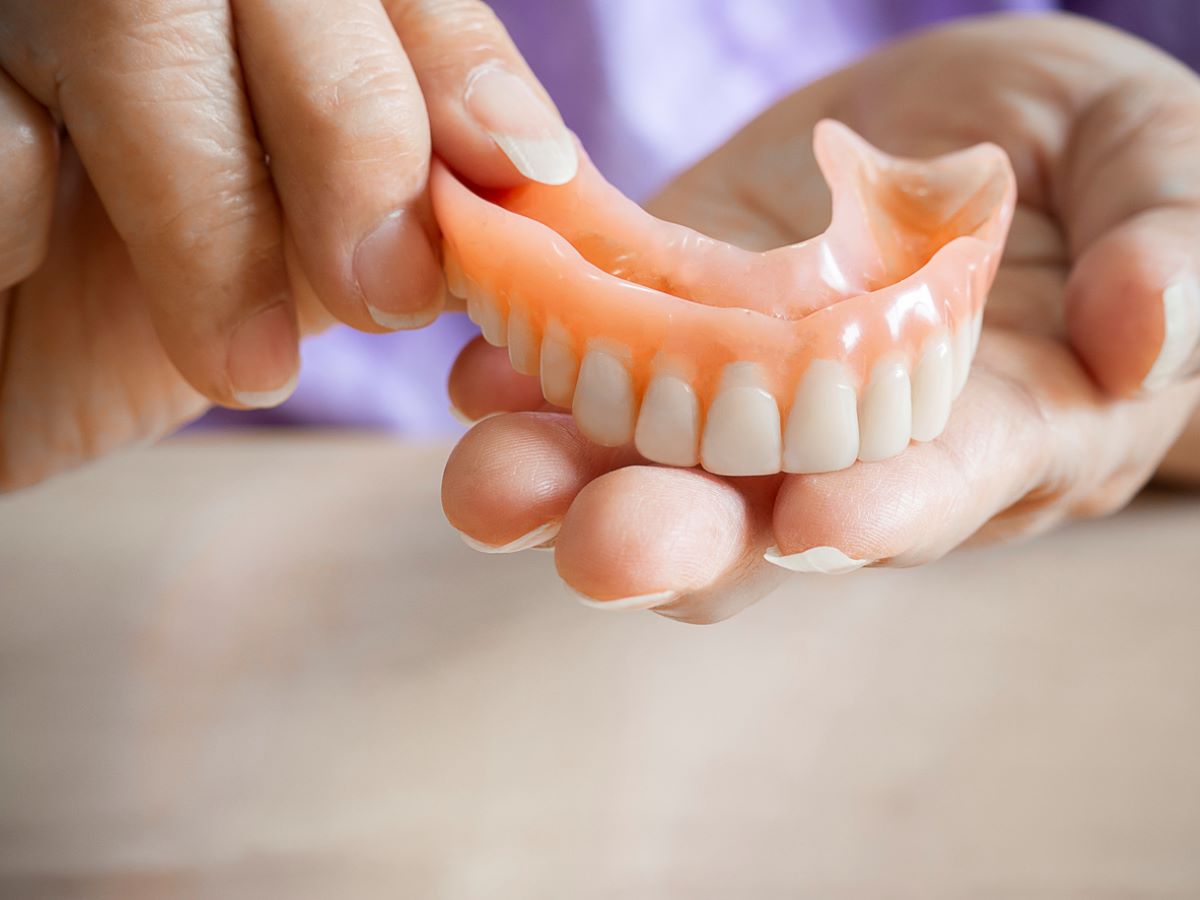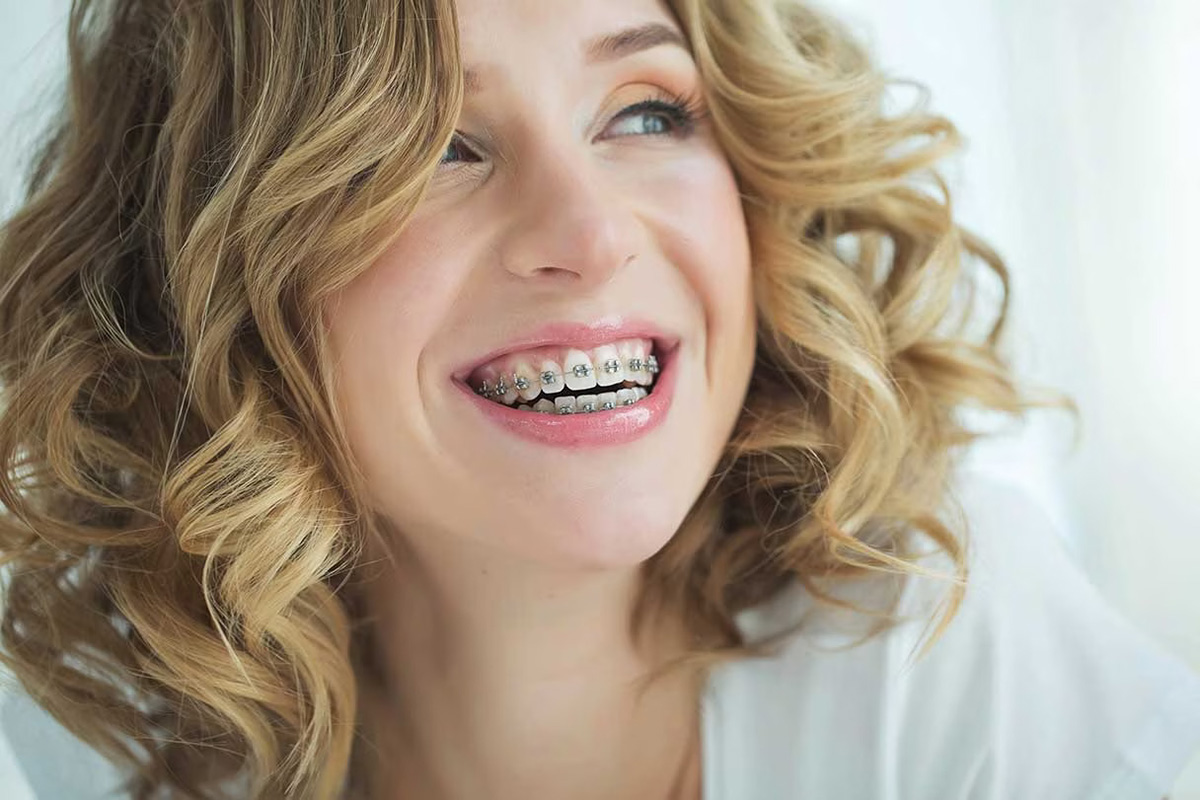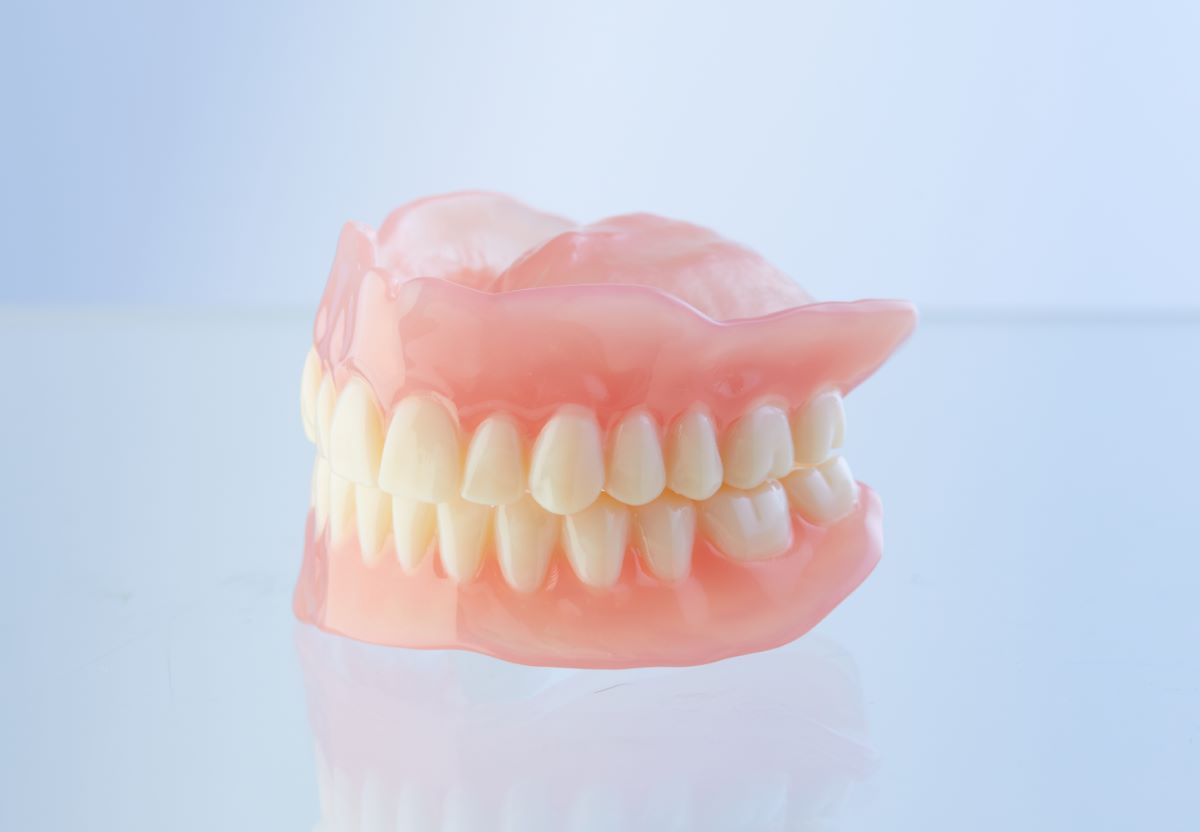Home>Finance>How Much Do Partial Dentures Cost Without Insurance?


Finance
How Much Do Partial Dentures Cost Without Insurance?
Modified: February 21, 2024
Discover the average cost of partial dentures without insurance and explore financing options to help you manage your dental expenses.
(Many of the links in this article redirect to a specific reviewed product. Your purchase of these products through affiliate links helps to generate commission for LiveWell, at no extra cost. Learn more)
Table of Contents
Introduction
When it comes to dental health, taking care of your teeth is vital. However, there are circumstances where tooth loss becomes unavoidable. Whether it’s due to decay, injury, or natural aging, missing teeth can have a significant impact on your oral health and self-confidence. Partial dentures offer an effective solution to fill in the gaps and restore both functionality and aesthetics.
Partial dentures are removable dental appliances designed to replace one or more missing teeth. They consist of artificial teeth attached to a gum-colored base, which is custom-made to fit snugly over the remaining natural teeth and gums. These dentures provide support for the surrounding teeth, prevent shifting, and allow for proper chewing and speaking.
One common concern when considering partial dentures is the cost, especially for those without dental insurance. The expense of partial dentures can vary depending on several factors, including the material used, the number of missing teeth, the complexity of the case, and the region where the treatment is performed.
In this article, we will explore the factors that can affect the cost of partial dentures, the average cost without insurance, low-cost options, and financing options available. We will also provide insights on denture care and maintenance to ensure the longevity of your investment.
It’s important to note that the information provided here is a general guide, and it’s best to consult with a dental professional to get an accurate estimate for your specific needs.
Factors Affecting the Cost of Partial Dentures
Several factors can influence the overall cost of partial dentures. Understanding these factors can help you make an informed decision and manage your budget effectively. Here are some key factors to consider:
- Material: The type of material used for the artificial teeth and the denture base can significantly impact the cost. Dentures can be made from materials such as acrylic, porcelain, or a combination of both. Porcelain dentures are generally more expensive due to their durability and natural appearance.
- Number of missing teeth: The cost of partial dentures can vary based on the number of missing teeth that need to be replaced. The more teeth that need to be included in the denture, the higher the cost.
- Complexity of the case: Cases that require additional procedures, such as extractions or bone grafting, may incur additional costs. These procedures are often necessary to create an optimal foundation for the denture and ensure a proper fit.
- Quality and customization: Dentures that are custom-made and tailored to your specific needs and preferences will typically cost more than generic, pre-fabricated dentures. Customization allows for better aesthetics and improved comfort.
- Location: The cost of dental services can vary depending on the region and local market conditions. Dental practices in urban areas or areas with a higher cost of living may have slightly higher prices compared to rural areas.
- Dental expertise: The experience and expertise of the dentist or prosthodontist who fabricates and fits your dentures can influence the cost. Specialists with advanced training and skills may charge a higher fee for their services.
It’s important to discuss these factors with your dental professional during the consultation to get a better understanding of the costs involved and explore suitable options within your budget. Remember that choosing the right partial denture is an investment in your oral health and overall well-being.
Average Cost of Partial Dentures Without Insurance
Without dental insurance, the cost of partial dentures can vary depending on the factors mentioned earlier. On average, the cost of partial dentures without insurance can range from $500 to $2,500 per arch (upper or lower jaw). This estimate includes the cost of the initial consultation, the fabrication of the dentures, and any necessary adjustments or follow-up appointments.
It’s important to note that this average cost may not include additional procedures, such as tooth extractions or bone grafts, which may be required in some cases. These procedures can add to the total expense, so it’s crucial to discuss these possibilities with your dental professional and understand the potential costs involved.
The cost can also be influenced by the region and the dental practice. Urban areas and regions with higher living costs often have slightly higher dental fees compared to rural areas. The experience and specialization of the dentist or prosthodontist can also affect the cost, as more experienced professionals may charge higher fees for their expertise.
While the price of partial dentures without insurance can seem daunting, it’s important to consider the long-term benefits of investing in your oral health. Partial dentures provide essential benefits, such as restoring your ability to chew and speak properly, improving your confidence and self-esteem, and preventing further tooth shifting and loss.
To get an accurate estimate for the cost of partial dentures without insurance, the best course of action is to schedule a consultation with a reputable dental professional. They will assess your specific needs, discuss different treatment options, and provide a personalized cost estimate.
Low-cost Options for Partial Dentures
For individuals without insurance or those looking for more affordable options, there are several low-cost alternatives available for partial dentures. While these options may come with some compromises, they can still provide a functional and aesthetically pleasing solution. Here are some low-cost options to consider:
- Acrylic Partial Dentures: Acrylic partial dentures are typically more affordable compared to other materials such as porcelain. They are made from a durable plastic material and can be customized to match the color and shape of your remaining natural teeth.
- Flexible Partial Dentures: Flexible partial dentures are made from a flexible resin material that offer improved comfort and a more natural appearance. They are less expensive than traditional rigid dentures and do not require metal clasps or hooks.
- Dental Schools: Dental schools often offer reduced-cost dental treatments performed by dental students under the supervision of experienced faculty. This can be a cost-effective option for receiving quality dental care, including the fabrication of partial dentures.
- Discount Dental Plans: Discount dental plans are membership-based programs that offer reduced rates on various dental procedures, including dentures. These plans can help reduce the overall cost of treatment, making it more affordable for individuals without insurance.
- Charitable Organizations: Some charitable organizations and non-profit dental clinics provide low-cost or free dental services to individuals in need. These organizations may have specific criteria for eligibility, so it is worth researching and reaching out to see if you qualify.
- Payment Plans and Financing Options: Many dental practices offer payment plans and financing options to help patients manage the cost of treatment. These options allow you to spread out the payments over a designated period, making it more manageable for your budget.
While these low-cost options may not provide the same level of customization or longevity as more expensive options, they can still offer a functional and satisfactory solution for replacing missing teeth. It is essential to discuss these options with your dental professional to determine the most suitable and affordable choice for your specific situation.
Financing and Payment Plans for Partial Dentures
Financing and payment plans are practical solutions to help manage the cost of partial dentures. Many dental practices offer flexible options that allow you to spread out the payments over time, making it more affordable and convenient for your budget. Here are some common financing and payment plan options to consider:
- In-house Financing: Some dental practices offer in-house financing options, where you can directly arrange a payment plan with the practice itself. This allows you to make regular payments over a specified period, often with little or no interest.
- Credit Cards: Using a credit card to finance your partial dentures is another option. You can choose to pay off the balance over time, taking advantage of any promotional interest rates or payment plans offered by your credit card provider.
- CareCredit: CareCredit is a healthcare credit card that can be used for various medical and dental expenses, including partial dentures. It offers short-term and long-term payment options with low or zero-interest financing, depending on the terms and conditions.
- Dental Insurance: Dental insurance can help offset the cost of partial dentures, depending on the coverage and benefits provided by your insurance plan. Be sure to review your policy to understand the extent of coverage for dentures and any potential limitations or exclusions.
- Health Savings Account (HSA) or Flexible Spending Account (FSA): If you have an HSA or FSA through your employer, you can use these funds to cover the cost of partial dentures. These tax-advantaged accounts allow you to set aside pre-tax money for eligible medical expenses.
- Third-party Financing: Some dental practices partner with third-party financing companies that specialize in healthcare lending. These companies provide options for low-interest or interest-free loans specifically for dental procedures, including partial dentures.
It’s essential to discuss financing and payment options with your dental professional before proceeding with the treatment. They can guide you through the available options and help you choose the most suitable plan for your financial situation. Remember to review the terms and conditions, including interest rates and repayment terms, to ensure you understand your obligations and can comfortably manage the payments.
Investing in your oral health is a worthy long-term investment. Exploring financing options can make the cost of partial dentures more manageable and enable you to achieve a healthy and confident smile.
Denture Care and Maintenance
Proper care and maintenance of partial dentures are crucial to ensure their longevity and optimal function. By following some essential guidelines, you can keep your dentures clean, prevent damage, and maintain good oral health. Here are some tips for denture care and maintenance:
- Cleaning: Remove your dentures and rinse them with warm water after meals to remove food particles and debris. Brush your dentures gently with a soft-bristle toothbrush and non-abrasive denture cleaner to remove stains and plaque. Avoid using regular toothpaste or hard-bristle brushes, as they can cause scratches and damage the denture material.
- Soaking: Soak your dentures overnight in a denture cleaning solution recommended by your dental professional. This helps to remove stubborn stains, bacteria, and odors. Follow the instructions on the cleaning solution for proper usage.
- Handling with care: When handling your dentures, make sure to do so over a soft towel or a sink filled with water to prevent them from breaking if dropped. Avoid using excessive force or bending the dentures, as they can become misshapen or damaged.
- Oral hygiene: Even with partial dentures, it is important to maintain good oral hygiene. Brush your gums, tongue, and remaining teeth (if any) with a soft-bristle toothbrush and fluoride toothpaste. This helps to remove bacteria and maintain the health of your oral tissues.
- Avoiding hot water: Avoid using hot water to clean or soak your dentures, as it can cause warping or distortion of the denture shape. Stick to lukewarm or room temperature water for cleaning and soaking purposes.
- Regular dental check-ups: Schedule regular dental check-ups with your dental professional, even if you have partial dentures. They will assess the fit and condition of your dentures, make any necessary adjustments, and perform a comprehensive oral examination to ensure your oral health is optimal.
Remember to follow these care guidelines to maintain the functionality, comfort, and appearance of your partial dentures. If you encounter any issues or damage to your dentures, contact your dental professional for appropriate repairs or adjustments.
By taking proper care of your partial dentures and practicing good oral hygiene, you can enjoy a healthy smile and the benefits that come with it.
Conclusion
Partial dentures offer a reliable solution for replacing missing teeth and restoring both functionality and aesthetics. While the cost of partial dentures may vary depending on various factors, there are options available for individuals without dental insurance or those looking for more affordable alternatives.
Factors such as the material used, the number of missing teeth, the complexity of the case, and the location can influence the cost of partial dentures. On average, the cost of partial dentures without insurance ranges from $500 to $2,500 per arch.
For those seeking low-cost options, acrylic or flexible partial dentures, dental schools, discount dental plans, charitable organizations, and payment plans can provide more affordable choices. Additionally, exploring financing options such as in-house financing, credit cards, CareCredit, and utilizing dental insurance or health savings accounts can help manage the cost.
Proper care and maintenance of partial dentures are essential for their longevity. Following guidelines such as regular cleaning, soaking, handling with care, maintaining good oral hygiene, and scheduling regular dental check-ups will ensure the durability, comfort, and functionality of your dentures.
While the cost and maintenance of partial dentures may seem daunting, it’s important to consider the long-term benefits they provide. Partial dentures help restore your ability to chew and speak properly, enhance your confidence and self-esteem, and prevent further tooth shifting and loss.
Consulting with a dental professional is crucial to get accurate estimates and recommendations based on your specific needs. They can guide you through the process, discuss suitable options within your budget, and provide the necessary care and maintenance instructions.
Investing in your oral health is an investment in your overall well-being. With the right partial dentures and proper care, you can enjoy a healthy, comfortable smile for years to come.














